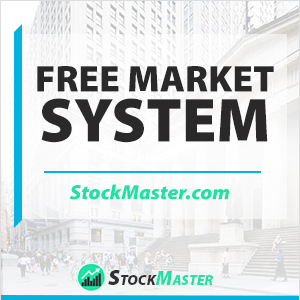 What is a Free Market System?
What is a Free Market System?
Definition: A free market system is an economic system whereby forces of demand and supply are in control. The market system is characterized by zero government control or involvement in the setting up of prices or supply of goods. In contrast, in a regulated market system, the government often decides what products are sold and plays a role in pricing.
A free market system works best in the private sector, whereby individuals and not the government own companies and properties. In a free market system, products and services exchange hands freely by a willing buyer and a seller. In this market, sellers do not face any barriers when it comes to setting the price. Likewise, they can set price at any level as long as consumers agree to the same.
It is impossible for an entirely free market system to exist in the real world. The government, among other authorities, imposes a wide array of policies and regulations that make it impossible for any economic system to operate freely.
For instance, the imposition of tariffs can make it difficult for importers and exporters to operate freely. Legal restrictions on where, when, and to whom a business can sell its products, such as alcoholic beverages, is another common barrier to a free market system.
Characteristics of a Free market System
A free market system is characterized mostly by private ownership of resources. In this case, individuals or companies in the private sector own a good chunk of the resources. The proprietors can, exercise control over production as well as the exchange of products.
A free market system comes with zero barriers to entry. In this case, any person can take part in the market, as the decision to produce and consumer products is voluntary. Likewise, consumers can purchase whatever amount of a product they wish without any restrictions. The exchange of goods, in this case, is voluntary, with all business agreements decentralized.
Free market systems are also characterized by thriving financial institutions, which provide the much-needed financial support investments. The financial institutions also give companies a way to exchange goods and services freely.
Free Market Economy Examples
Hong Kong was considered a free market economy in 2019, given the extremely low tax rates that reduced the barriers of entry. Likewise, minimal regulations on businesses, as well as a matured capitalist system, ensured that forces of demand and supply dictated the exchange of goods in the economy. Singapore also ranks highly among countries with free-market systems, given the near-zero tariffs and fewer restrictions in the market.
Benefits of a Free Market System
One of the biggest advantages of a free market system is that it encourages innovation. Producers are, in this case, able to come up with new ideas as well as products that meet consumer needs without any restrictions from the government. Entrepreneurs are consequently motivated to carry out their own research and identify popular trends worth pursuing.
In a free market system, customers also have a say. In this case, the consumers decide which products would go on sale and whether they will be a success. When presented with options, consumers have a right to choose whichever product offers better value for money. In some instances, consumers influence the price set by producers, as there is always a need to strike a balance.
Free Market Drawbacks
A free market can lead to manipulation as profits drive producers. Given that the primary objective of any business is to generate profits, a producer may offer low-quality products, given the lack of regulatory control, all in the effort of generating profits
Market Failures
The free market system often spins out of control triggering serious repercussions to consumers. Lack of government control and regulation is cited as one of the triggers behind the devastating 2008 financial crisis that led to many people losing their homes and jobs.
